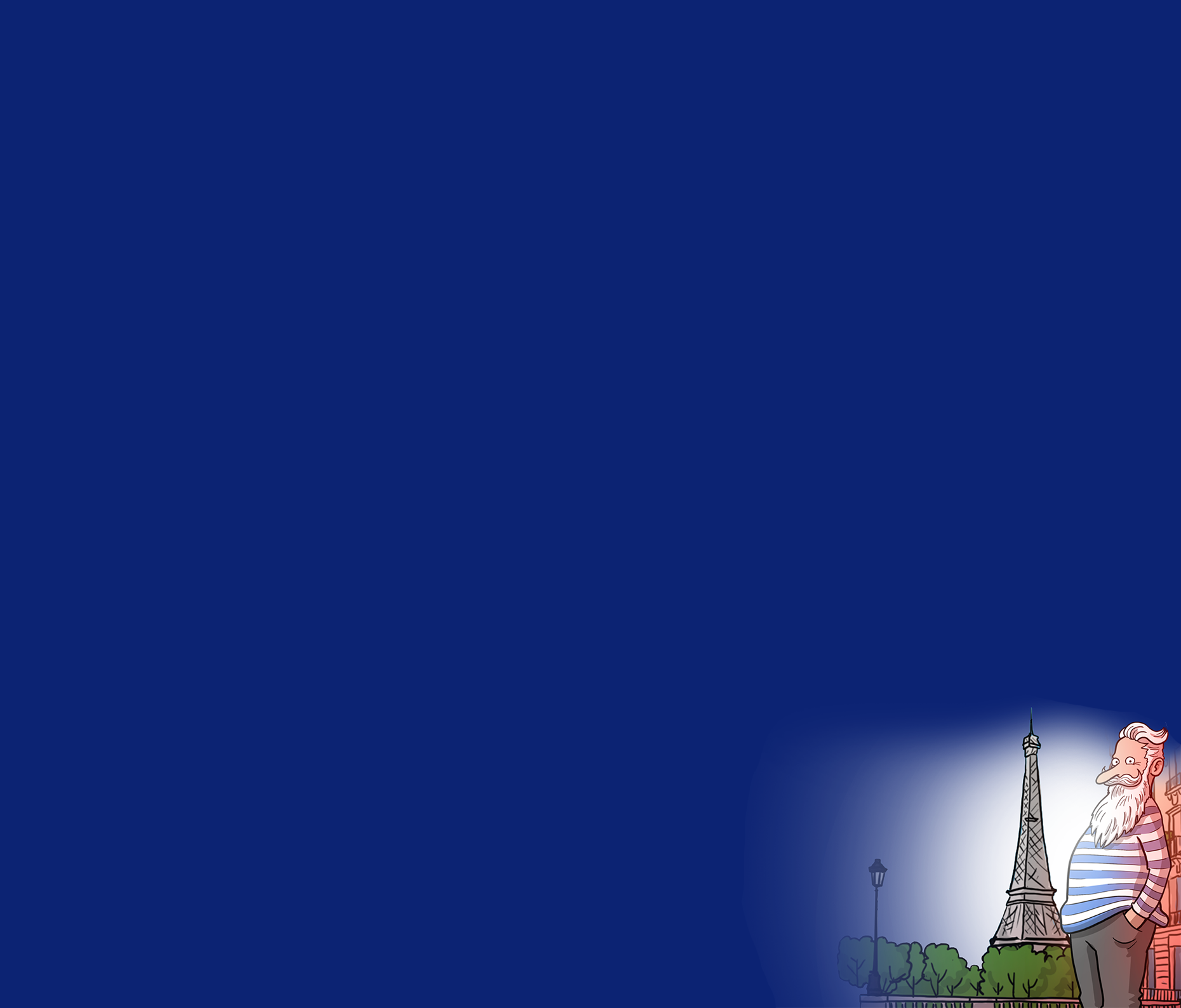Dangerous liaisons
French requires liaison when two words are pronounced without a pause between the two and when the second word starts with a vowel or a silent h.
vous achetez
(you buy), elle les aime
(she loves them), vous en avez
(you have some) (pronoun + verb; pronoun + pronoun)
un homme (a man), les anciens étudiants (the former students) (article + noun; article + adjective, adjective + noun)
trop important (too important), bien assez tôt (soon enough) (adverb + adjective or adverb + adverb)
Vient-elle ? (Is she coming?) (verb + subject when subject is inverted)
un homme (a man), les anciens étudiants (the former students) (article + noun; article + adjective, adjective + noun)
trop important (too important), bien assez tôt (soon enough) (adverb + adjective or adverb + adverb)
Vient-elle ? (Is she coming?) (verb + subject when subject is inverted)
Liaison is not allowed when there is a pause between the words.
Jules et Isabelle
(after et)
Mes chats ont tout mangé (my cats ate everything), Bertrand est parti (Bertrand has left) (noun + verb)
Ont-ils aimé le film ? (Did they like the film?) (pronoun + verb when the subject is inverted)
les haricots verts (green beans) (in front of a voiced or aspirated h)
Mes chats ont tout mangé (my cats ate everything), Bertrand est parti (Bertrand has left) (noun + verb)
Ont-ils aimé le film ? (Did they like the film?) (pronoun + verb when the subject is inverted)
les haricots verts (green beans) (in front of a voiced or aspirated h)
For the other cases, you can use liaison or not, it's up to you. (You can pronounce the words without a pause or with a pause).
Je suis étudiant
or
(I'm a student) (verb + complement)
des prix élevés or (high prices) (noun + adjective)
des prix élevés or (high prices) (noun + adjective)
Note:
• If there is a choice to use liaison or not, the style becomes more formal when liaison is made.
• The pronunciation of certain letters changes when the liaison is made:
• If there is a choice to use liaison or not, the style becomes more formal when liaison is made.
• The pronunciation of certain letters changes when the liaison is made:
d becomes t → un grand enfant (pronounced un [grantenfant])
(a big child)
f becomes v → neuf heures (pronounced [neuveheure]) nine o'clock
s and x become z → de beaux yeux (pronounced de [beauzyeux]) (beautiful eyes)
ein, ain become eine, aine → un lointain ami (pronounced un [lointaine ami]) (a distant friend)
f becomes v → neuf heures (pronounced [neuveheure]) nine o'clock
s and x become z → de beaux yeux (pronounced de [beauzyeux]) (beautiful eyes)
ein, ain become eine, aine → un lointain ami (pronounced un [lointaine ami]) (a distant friend)
Still having trouble with 'Dangerous liaisons'? Master the rules of French grammar and improve your French level thanks to our online French lessons Frantastique. We're offering a 7-day free trial, so what are you waiting for?
What our users say:
Looking to improve French for beginners? Frantastique provides effective and fun training!
Tips for learning 'Dangerous liaisons'? Share them with us!

